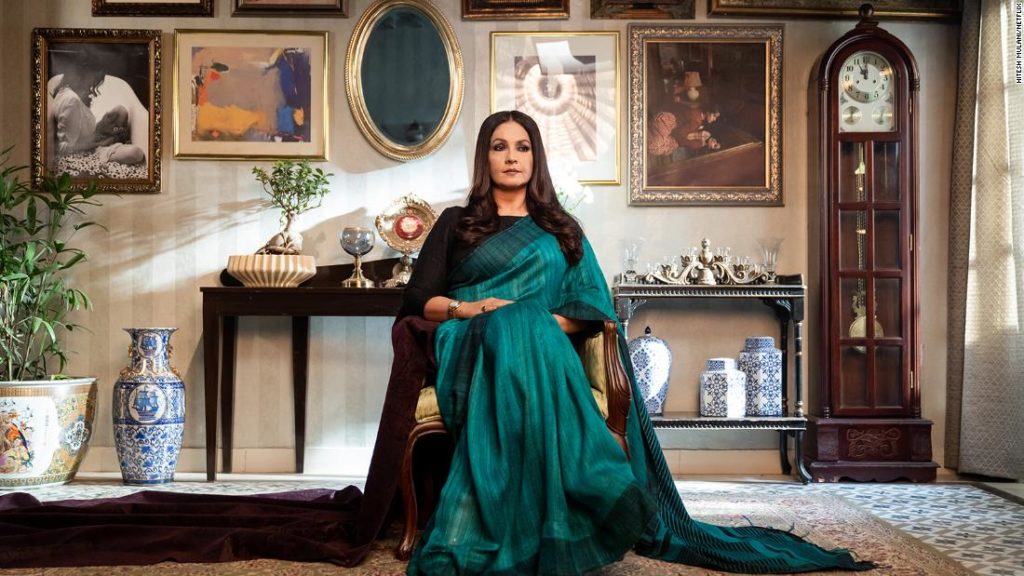Even with two major, critically acclaimed films under her belt — “Kal: Yesterday and Tomorrow,” a thriller she wrote and directed, and “Hazaaron Khwaishein Aisi,” a political drama that won Bollywood’s equivalent of an Academy Award — the work just wouldn’t come.
Since then, the Mumbai-based filmmaker says she has “been inundated with work.” Her film “Guilty” — a social issues drama about a rape investigation — was released by the streaming giant in 2020. In the same year, Disney+ Hotstar released her 8-part comedy series “Hundred.”
Now, increasing government scrutiny of these more provocative projects and other groundbreaking stories is worrying Narain and many other creators in Mumbai, the home of India’s film industry.
Original shows on Amazon Prime and Netflix have lately drawn ire from Indian politicians and regular citizens who consider these films and TV shows insensitive to cultural and religious beliefs.
Start of a new era
“I co-directed a film called ‘House Arrest,’ which was released on Netflix in 2019, and everyone on set was thrilled just because they were getting paid on time,” said Samit Basu, novelist and filmmaker. He added that the culture changed to one where rigorous research and development were commonplace.
“A lot of book rights were auctioned and writers’ rooms started happening,” Basu added. “Earlier, people in the film industry hardly ever read books.”
More importantly, these companies made it possible for storytellers to explore subjects that had previously been untouched.
Amazon’s first series in the country, meanwhile, was “Inside Edge” — a show about the dark underbelly of cricket, a sport that is worshipped in India. Both “Inside Edge and “Sacred Games” were nominated for International Emmy awards.
Several other shows on the platforms have also taken an unflinching look at subjects ranging from politics to female sexuality, which Bollywood and Indian TV have typically shied away from. “I am glad I did my film for Netflix because they did not dilute anything,” said Narain, referring to her project “Guilty.”
When a kiss offends
But lately, the political and public outrage has reached a crescendo.
“India is tolerant and will remain tolerant,” India’s technology minister Ravi Shankar Prasad said on Thursday. “But the limits of tolerance and standards of tolerance should not be judged on the creating freedom or abuse of a particular producer of an OTT platform.”
The new rules do not explicitly ban any type of content — but the vague scope of the regulations is also exactly why filmmakers who spoke to CNN Business were troubled. A wide range of topics have already been targeted with complaints and outrage, leaving creators second-guessing and self-censoring.
“In India, anyone can have a problem with anything. In India, people confuse what a character is saying with what the writer believes,” said Sumit Purohit, who wrote for “Inside Edge” and “Scam 1992,” a web series on Sony’s streaming service SonyLiv. “How can you make a series like the ‘Mindhunter’ here?” he asked, referring to a Netflix show about serial killers.
Purohit also described the impact of self-censorship on a writer, saying that it “makes you angry, frustrated,” because “that is not how any art is created.”
The backlash from all sides — politicians, journalists, national agencies and even regular citizens — is hard for American services to fight in India, a key overseas market, as they are wary of getting on the wrong side of the government.
A chilling effect
Amazon and Netflix declined to comment on the reports.
“Nothing that has politics in it is being touched [commissioned] right now,” said Josy Joseph, an investigative journalist whose media platform is collaborating with the creator of “Sacred Games” to make a series about Tihar Jail, India’s largest prison.
“There is a massive depression that has set into the creative minds of Mumbai,” he said. “They are scared and writers are winding down to mediocrity. They are going back to telling saas-bahu stories or conservative romance.” (Saas-bahu means “mother-in-law and daughter-in-law” in Hindi.)
While production isn’t slowing down — Netflix has announced 40 new shows and movies from India — Basu worries that production houses in the future may go for content that is “unambiguously safe” and “assumes that the audience’s intelligence is zero.”
Just weeks after Prime Video executive Purohit was questioned by police, the platform announced it would produce its first film in Bollywood, the stronghold of traditional Indian movie making. “Ram Setu” will “highlight our Indian heritage,” said Vijay Subramanium, the head of content at Amazon Prime Video India, in a statement.
Some filmmakers are less pessimistic about their creative freedom.
Karan Anshuman, one of the creators of “Mirzapur” and “Inside Edge,” said he felt it was “too early to react” to the heightened scrutiny, adding that he would rather “wait and watch.”
But film writer Arpita Chatterjee, said it is too late to rein in the Indian filmmaking community now.
“We can’t just go back 20 years,” Chatterjee said. “The world is at a different place and storytellers are at a different place. You can’t just put the genie back in the bottle.”
You may also like
-
Afghanistan: Civilian casualties hit record high amid US withdrawal, UN says
-
How Taiwan is trying to defend against a cyber ‘World War III’
-
Pandemic travel news this week: Quarantine escapes and airplane disguises
-
Why would anyone trust Brexit Britain again?
-
Black fungus: A second crisis is killing survivors of India’s worst Covid wave

